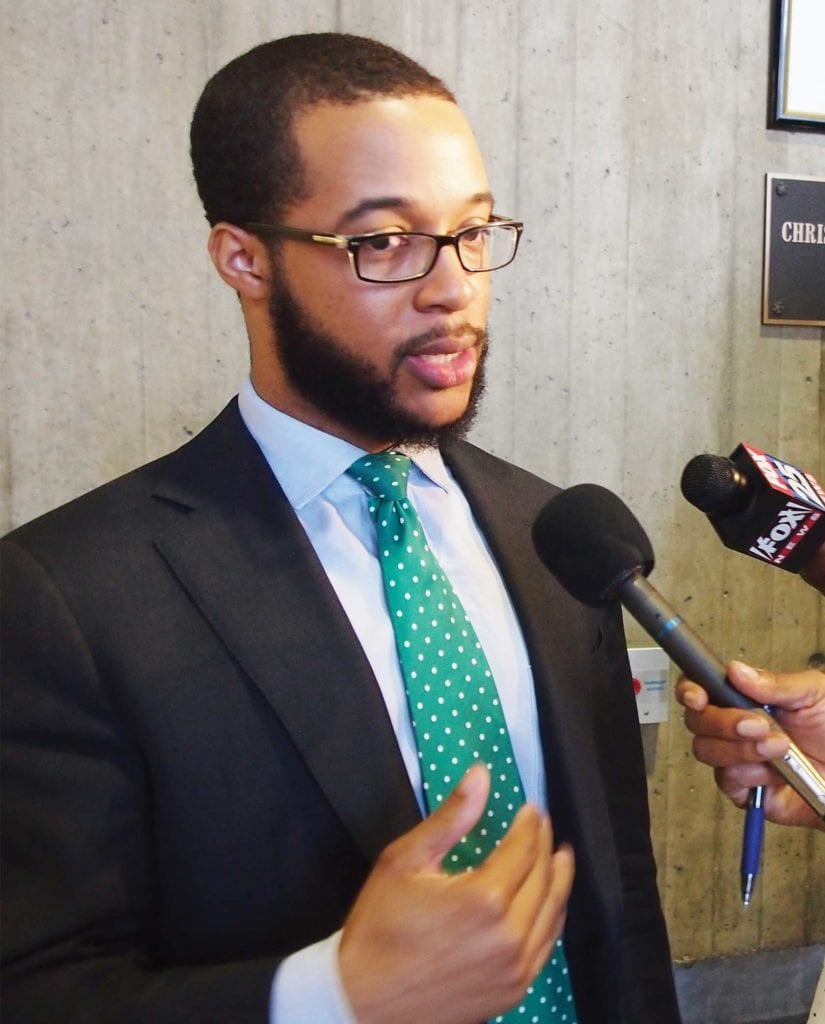Blacks getting slim share of city dollars
Activists blast city after disparity study shows no progress with contracting

In 2017, the NAACP Boston Branch and other advocacy groups released a report card on the administration of Mayor Martin Walsh, noting, among other findings, that few of the city’s contracting dollars went to businesses owned by Blacks, Latinos and Asians.
Under pressure from the rights groups, the Walsh administration agreed to conduct a disparity study — an analysis comparing the number of firms eligible to contract with the city to the number of firms that actually secure such contracts.
The numbers, which confirm previous studies, show that just a handful of businesses owned by people of color did business with Boston over the last four years, despite the Walsh administration officials’ professed commitment to expanding opportunities.
“It’s not surprising,” said Segun Idowu, executive director of the Black Economic Council of Massachusetts (BECMA). “This just proves what everyone’s been saying for decades. But it’s still pretty appalling to see the numbers on paper.”
While people of color make up a majority of the city’s residents, just 2.5 percent of the city’s $2.1 billion in contracts went to businesses owned by Blacks, Latinos and Asians. Of businesses eligible and willing to do business with the city, firms owned by people of color account for 11.3%, the report found.
Black-owned firms received just 0.4% of city contracting dollars, Latino-owned firms 0.8% and Asian-owned firms 1.1%. Non-Hispanic woman-owned firms accounted for 8.5% of city contracting dollars.
BBC Research and Consulting, the firm hired by the city to conduct the review, analyzed the number of firms owned by people of color and women that are eligible to contract with the city, looking at areas including construction and design, services and procurement. The firm’s analysis found that as much as 16.9% of the city’s contracting could go to such businesses.
Construction-related firms receive a major portion of the city’s $2.1 billion in contracting dollars. The study found that 2.6% of such contracting dollars could go to Black-owned firms that are capable and willing to contract with the city. In other professional services, which include legal work and accounting, Black-owned firms could receive as much as 9.7% of contracting dollars, the study found.
The .4% of all contracting dollars Black-owned firms actually received underscores the missed opportunities for firms run by people of color, BECMA members said in a statement send to news media.
“The 703-page report lays out in stark detail that despite the pronouncements, public statements, executive orders and policies, Mayor Martin J. Walsh and his administration have failed to deliver fair and equitable procurement for Black-owned businesses, as well as for other minority- and women-owned businesses,” the statement reads. “Bold leadership is required to immediately correct this systemic problem.”
Nick Martin, a spokesperson for the Walsh administration, said the disparity study is a precondition for the city to institute race-conscious strategies to increase contracting opportunities for businesses owned by people of color and women.
“Our plan in launching the first disparity study in 18 years has always been to use the results as a tool to inform meaningful reform and policy changes that will strengthen the city’s equitable procurement practices and level the playing field to ensure equal access to opportunities,” Martin said in a statement sent to the Banner.
Advocates say the report, which comes three-and-a-half years after the NAACP’s 2017 report, has taken too long, costing people-of-color-owned businesses lucrative opportunities.
“It is an incredibly long time,” said NAACP Boston Branch President Tanisha Sullivan. “We’ve been expecting this report since the end of 2019.”
BECMA is calling for the city to set spending goals of 15% for black-owned businesses, and for city departments and city-managed quasi-governmental agencies such as the Boston Planning and Development Agency to unbundle large contracts, breaking them down into smaller-contracts that the smaller firms owned by people of color could bid on competitively.
BECMA is also calling on the Walsh administration to remove Chief Financial Officer Emme Handy and Eugene O’Flaherty, the city’s corporation counsel, all of whom the group says have been “stumbling blocks to progress.”
“We will not accept the notion that these demands cannot be accomplished immediately,” the BECMA statement reads. “Seven years was long enough to move the needle on issues that are hardly new.”
Sullivan warned that the city’s contracting should continue to be monitored.
“It’s important that data disaggregated by race is reported out regularly so we can monitor the city’s progress and so that we’re able to make adjustments sooner rather than later,” she said.
In addition to greater transparency, Sullivan said the NAACP is advocating for independent oversight of the city’s contracting process.
“There needs to be some targeted oversight of the city’s procurement practices that leads to accountability,” she said “This can’t be a self-monitoring process. There needs to be external oversight.”







